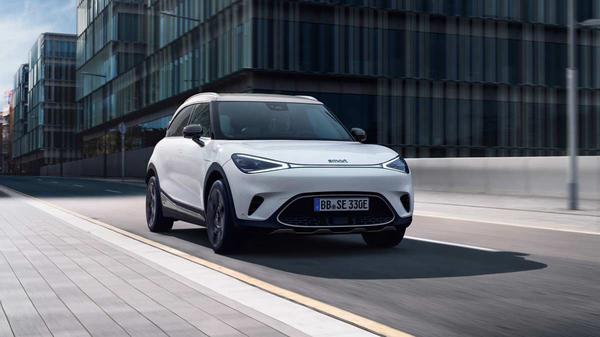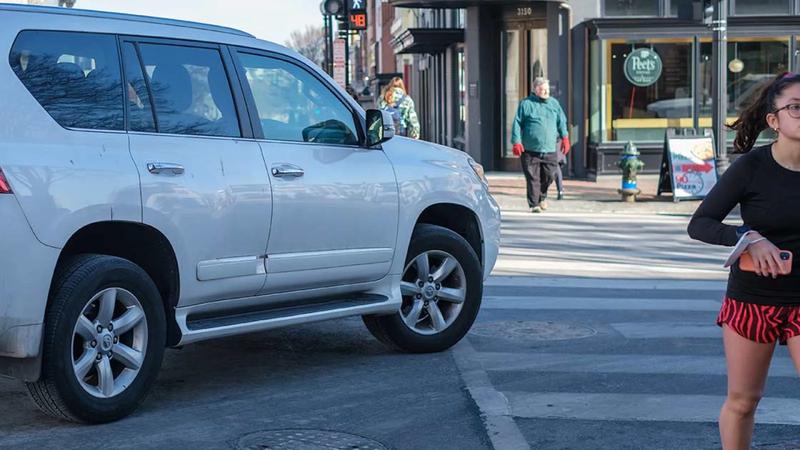Almost 27 years after the premiere of the first Smart car at the Frankfurt Motor Show IAA, the brand has introduced its all-electric Smart #1 in Berlin as it seeks to not only reinvent itself but also redefine the future of transport.
Originally born out of an idea to market cars in the same way as the once-famed Swatch watches, Smart micro cars were first launched by Daimler-Benz in 1998. Most would be familiar with the tiny Fortwo and Forfour cars, the former of which is available in both petrol and electric drivetrain.
Now, apart from the brand’s moniker, absolutely everything is new: its market segment, business model, as well as sales structures.
“The new smart #1 stands for the re-start of the smart brand and showcases our new design DNA of Sensual Product,” said Gorden Wagener, chief design officer for Mercedes-Benz Group via a statement.
“It is grown up, cool and embodies beauty with smart solutions. Therefore, it is new, fresh, and enchanting. Our new smart #1 has the potential to make smart a leading design brand.”
While the first Smart was a small two-seater, the new 4.27 metre electric car is a compact four-seater SUV that has little to do with a classic all-road vehicle.
However, it is no wallflower in terms of small-car specs. Specifications for the Smart #1 include a single-motor on the rear axle that outputs 200kW power, with 343Nm torque and a maximum speed of 180km/hr.
With a 66kWh nickel-cobalt-manganese battery, it can fast-charge at a top rate of 150kW on a DC charger for 10-80% top-up in just 30 minutes and at 22kW on an AC charger, giving a charge from 10-80% in under 3 hours. See the bottom of the article for full specifications.
Visually, there are parallels to be drawn with the BYD Atto 3, with its vehicle-wide running lights at the front and rear. However, the overall styling is one that is more akin to the smooth edges and two-tone colour scheme of a 1990s iMac computer.
While there is no noise as yet as to whether Smart will make a re-appearance in Australia (the brand was axed in 2015), the new direction could certainly fit in well on the electric car market. However given the relatively high pricing for the small runabout was originally deemed the reason for the brand’s exit, and the new #1 is also pitted with a premium image, this might be unlikely.
With a focus on a European market, the Chinese-made Smart #1 (pronounced “smart hashtag one” in the debut) is the first new creation of the joint venture between Mercedes-Benz and the Chinese major shareholder and partner Geely. The brand’s headquarters is located in Hangzhou, about an hour’s ride from Shanghai by bullet train.
Dirk Adelmann, head of the European subsidiary Smart Europe, does not see the joint project as a Chinese brand after the complete restart: “We are based in two regions and, like our shareholders, are at home in two worlds.”
Development and production of the Smart #1 follows a trajectory first pioneered by Apple, which designs the iPhone in California but makes it in China. According to Adelmann, development and production take place in the Geely network, while the design of the new car was created at Mercedes-Benz.
The vehicle will be sold via 95 European Mercedes dealerships that previously had the Smart Fortwo and Forfour on offer.
Because the cars are in the same showrooms as the models with the star, “we also have a certain premium claim,” says the Europe boss. According to Adelmann’s ideas, the new Smart could be interesting as a second car for Mercedes customers, for example, who can then take the car to their usual workshop.

But the unveiling of the Smart #1 is not just about the brand’s rebirth.
European automotive analyst Matthias Schmidt has described the introduction of the Smart #1 as just the tip of the iceberg for the industry globally. Built using Geely’s scalable platform which will enable it to leverage, he said on Twitter that the China-based company, whichalso owns half of Volvo, is “likely to be a global force to be reckoned with.”
To sum up, Smart #1 presentation from my perspective paradoxically is much more to do with macro leveraging and scaling benefits of the new scalable SEA Geely platform than the micro rebirth of smart. Geely likely to be a global force to be reckoned with. pic.twitter.com/xEGBlfpLWK
— Matthias Schmidt (@auto_schmidt) April 7, 2022
With the Smart #1, the brand is targeting families and small companies who want to share the car. Car sharing is particularly easy with the new EV because you no longer need a physical car key. As with Tesla cars, a smartphone app instead serves as a digital key.
From the navigation to the air conditioning to the music program, most of the functions of the electric car can be set by tapping a screen with your finger. The range of a battery charge is given as 420 to 440 kilometres.
Because raw material prices have risen sharply and exchange rates are volatile, pricing will not be released until September, when the first orders in Germany will be accepted. First deliveries to customers are expected to commence in December.
While sales of the previous four-seater Smart Forfour have already been discontinued, the two-seater Smart Fortwo will for now still be delivered in Europe.
In Germany, there are currently waiting times of more than a year for this model, Adelmann said. However, the Fortwo is now a discontinued model. “We are currently thinking about a possible two-seater – then on a fully electric platform from Geely,” says Smart’s European boss.
Drivetrain and Performance:*
Charging and Consumption:*
AC: 10-80% <3h
DC: 10-80% <30 mins
Exterior:
Interior and Infotainment:
Safety and Security:
* The vehicle is in the EU homologation procedure and the homologation is expected to be completed in the second half of 2022. All the values are preliminary only.
Bridie Schmidt
Bridie Schmidt is associate editor for The Driven, sister site of Renew Economy. She has been writing about electric vehicles since 2018, and has a keen interest in the role that zero-emissions transport has to play in sustainability. She has participated in podcasts such as Download This Show with Marc Fennell and Shirtloads of Science with Karl Kruszelnicki and is co-organiser of the Northern Rivers Electric Vehicle Forum. Bridie also owns a Tesla Model 3 and has it available for hire on evee.com.au.




